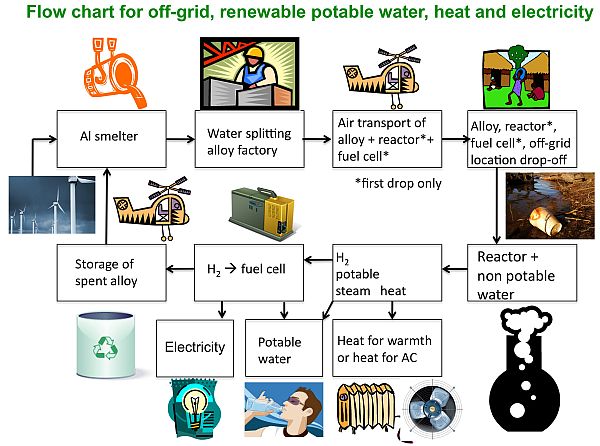
As many places around the world are devoid of drinking water and electricity, a device that can efficiently fulfill both these requirements will be a real boon. Researchers from the Purdue University have come up with a technique to produce potable water as well as electricity from non-potable water. They have made an aluminum alloy that can be used in a mobile technology to produce both drinking water and electricity.
The alloy contains aluminum, gallium, indium and tin. When this alloy is put into either fresh water or saline water, it splits the water into hydrogen and oxygen. The hydrogen is then fed to a fuel cell where electricity can be generated while water comes out in the form of steam as a byproduct. This steam kills any microorganisms present and can be cooled to form pure water.
According to Jerry Woodall, a professor of electrical and computer engineering at Purdue University, this technology can be very useful, as it can be used to produce electricity and water in remote areas and also in military camps. As the technology has the potential to be used in saline water, it can also be used to give electricity to ships and underwater vehicles.
Woodall also said that the technology is very economical because aluminum is a cheap metal and abundantly available. Moreover, the aluminum reacts to water to convert into aluminum hydroxide, which is harmless and can be easily disposed without the fear of pollution. Another advantage of this technology is that the whole unit, comprising alloy, fuel cells and the reactor, is less than 100 pounds, which makes it totally portable.
According to the researchers, the water produced in this way will cost $1 per gallon and electricity will cost 35 cents kilowatt hour of energy, which is pretty much affordable when compared to the cost of building power plants.
If the technology is able to produce electricity and water as it claims, it will have a great future and help many regions of the world where these facilities are scarce.
Source: Purdue




